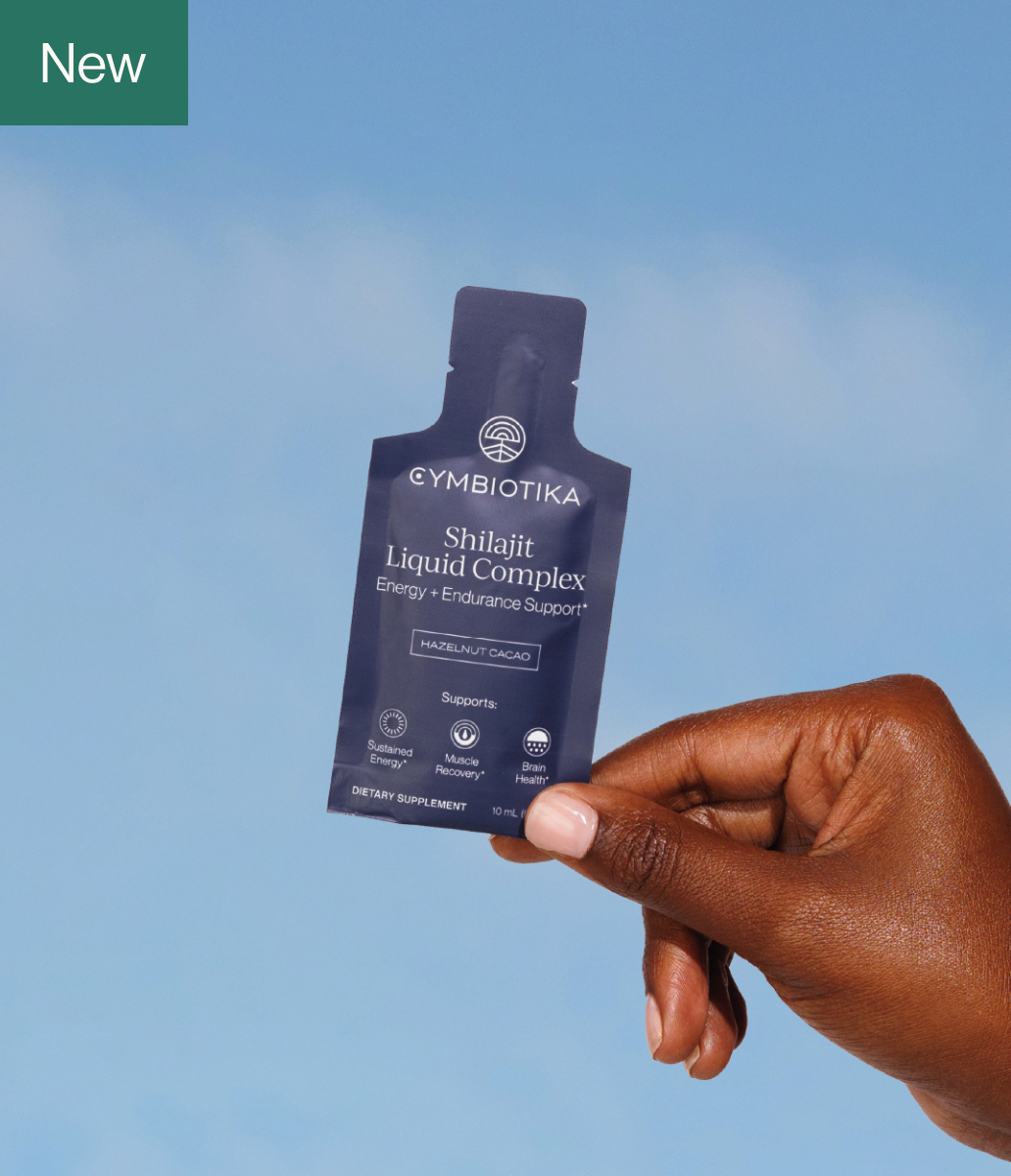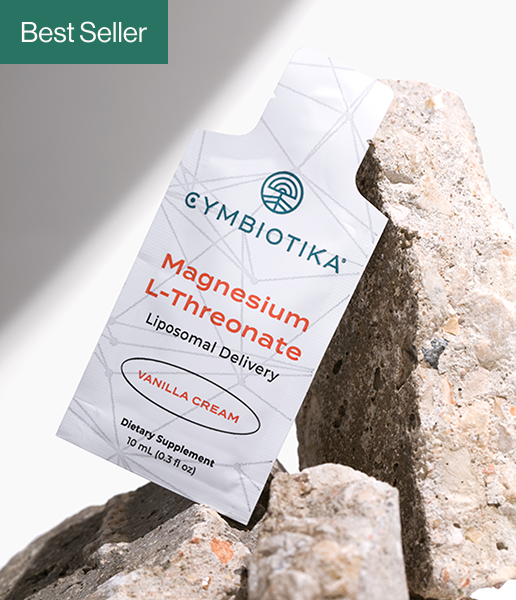
Let’s face it, seasonal allergies are no fun.
The sneezing, stuffy nose, watery eyes, and itchy throat are just some of the unpleasant allergy symptoms that millions of people deal with. And while pollen is the most common culprit, there are dozens of agents that can trigger an immune response, including mold spores, dust, dust mites, and airborne contaminants.
Are you tired of allergies derailing your day? Do you want a natural way to combat seasonal allergies in the form of an immune defense supplement?
Well, here’s some good news—vitamin C can help. Today, we’ll discuss the underlying causes of allergies and the steps you can take to alleviate them.
How Do Allergies Work?
In order to understand the ways in which vitamin C can help with allergies, it can help to get a general understanding of how allergies work within our bodies.
Allergic rhinitis, more commonly known as hay fever, impacts approximately 5 million children and 19 million adults each year.1 Allergic responses are generally caused by outdoor or indoor allergens like pollen, dust, or animal dander that are either inhaled, ingested, or touched.
When the body’s immune system senses foreign agents, it triggers a histamine response, which causes the cold-like symptoms commonly associated with allergies, including:
- Sneezing
- Fatigue
- Nasal congestion
- Runny nose
- Swollen under eyes
- Coughing
- Itchy nose, eyes, roof of the mouth
- Postnasal drip
As the name implies, seasonal allergies can occur or get worse during specific time periods. Typically, there’s some specific allergen that’s being released during that season. For instance, common seasonal triggers include:2
- Early spring – Tree pollen
- Late spring to summer – Grass pollen
- Fall – Ragweed pollen
- Perennial – Dust mites, dander, fungi, and molds
But, just because you’re allergic to one seasonal allergen doesn’t mean you will be susceptible to others. Per John Hopkins Medicine:3
Common allergic reactions, such as hay fever, certain types of asthma, and hives are linked to an antibody produced by the body called immunoglobulin E (IgE). Each IgE antibody can be very specific, reacting against certain pollens and other allergens.
Allergies and Immune Response
Your immune system is composed of a complex network of cells and organs that work in unison to fend off infection. It’s designed to protect you by keeping microorganisms like bacteria, viruses, and fungi out of your body. It also eliminates any infectious microorganisms that do make it inside the body.
The organs that are a part of this immune system network are known as lymphoid organs. They produce, regulate, and release white blood cells known as lymphocytes that circulate throughout the body. These organs include:33
- Bone marrow
- Blood vessels
- Appendix
- Adenoids
- Lymph nodes
- Lymphatic vessels
- Peyer’s patches
- Spleen
- Tonsils
- Thymus
In most cases of allergies, the immune system misidentifies a harmless airborne substance. Thinking the invader is a threat, it begins to produce IgE antibodies. The next time that the body interacts with that substance, the antibodies will then trigger your immune system, telling it to release chemicals like histamine into your bloodstream. Once released, you can expect to experience the unpleasant symptoms commonly associated with seasonal allergies.
And this is what brings us to vitamin C.
Why Does Vitamin C Help with Allergies?
Vitamin C is an immune system booster.
Also known as ascorbic acid, Vitamin C is an essential nutrient the body needs to form blood vessels, muscles, cartilage, and collagen. But because it’s not a naturally occurring substance, humans need to absorb it, whether via sunlight or ingestion.
One of the reasons why Vitamin C is a powerful force against allergies is that it naturally contains antioxidants, anti-inflammatories, and antihistamines. As an antihistamine, it breaks down the molecular structure of histamine, thus reducing the concentration of histamine in blood circulation. And since histamines are released as a part of the allergic immune response, this can help reduce the severity of allergic symptoms.
There are dozens of studies indicating that Vitamin C may be a potent weapon in the fight against seasonal allergies. They include:
- A 2018 study discovered that oxidative stress was “a key factor in the pathogenesis of allergic diseases and a potential therapeutic target in allergy treatment. Allergic diseases are reportedly associated with reduced plasma levels of ascorbate, which is a key physiological antioxidant.” Researchers treated patients with an intravenous high-dose of vitamin C and witnessed a noticeable reduction in allergy-related symptoms.4
- A 2013 study on people with allergies showed that those patients that had a 7.5g vitamin C infusion had approximately 50% less histamine in their blood.5
- A 2000 study found that perennial allergic rhinitis—an IgE-mediated inflammatory disorder— could be treated naturally using Vitamin C.6
Elderberries—The Natural Vitamin C Solution
While there are many natural remedies that humans have used to treat various maladies over the millennia, few are as pervasive throughout cultures and versatile in the application as elderberries.
This flowering plant that acts as a natural remedy belongs to a plant species known as the Sambucus tree, which can be found all over the world. The most common genus is the European elderberry (Sambucus nigra), also known as the black elder. It produces clusters of white flowers known as elderflowers, which yield small black elderberries.7 Other species include:
- American elder
- Bule elder
- Danewort
- Red-fruited elder
- Dwarf elder
- Antelope brush
In folk medicine, the elderberry is one of the most commonly mentioned healing plants. Even Hippocrates—the patriarch of modern medicine—dubbed the elder tree his “medicine chest.”8And that’s likely because several parts of the tree have been used for holistic treatments aside from just the berry. That includes the flowers, leaves, and bark.
But it’s not just ancient wisdom that supports the medicinal use of elderberries—it’s backed by science.
Elderberries are a powerful natural treatment for a variety of ailments because of its chemical makeup. They are rich in immune system-building properties, including antioxidants and vitamins. That includes plenty of vitamin C. Just a single cup of elderberries contains:9
- 52.2 mg of Vitamin C
- 2.32 mg of Iron
- 10.2g Total Dietary Fiber
- 0.334mg Vitamin B6
- 26.68g carbohydrates
- 0.088mg copper
- 406mg potassium
- 0.102mg Vitamin B1
- 57mg Phosphorus
- 0.087mg Vitamin B2
- 44 µg Vitamin A
Additionally, elderberries contain chemical compounds known as anthocyanidins, which have immuno-stimulant effects.
Cymbiotika Elderberry Defense
Do you want an easy way to get all of the nutritional and allergy-fighting benefits of elderberry?
Then Cybiotikea’s Liposomal Elderberry Defense is the solution you have been looking for. As a powerful hypertonic, this supplement contains:
- Elderberry
- Elderberry Vitamin C and Zinc
- Zinc
- Copper
- Selenium
- Quercetin
- Phenolic acids
So does elderberry help with sinus infections? These ingredients, combined with the inherent antiviral properties of Elderberry, make the Elderberry Defense a powerful treatment for both allergies and the flu virus. It can reduce histamine activity and inhibit viral infection.
By stimulating and boosting your immune system, you can support your body as it fights off colds, viruses, and allergens. Elderberry also has side health benefits, such as reducing inflammation while supporting healthy sinuses and nerves. Along with that, elderberry benefits for the skin are vast.
What’s In It?
The Liposomal Elderberry Defense is made with 100% pure and organic elderberry. There are zero concentrates, syrups, GMOs, heavy metals, or artificial sweeteners. In addition to the organic elderberry juice extract, other ingredients include:
- Echinacea Purpurea Extract – An herb that can help raise white blood cell counts to help support a healthy immune system.
- Sodium ascorbate – A mineral salt within Vitamin C, this helps support the immune system and protect cells from free radical damage.
- Zinc Bisglycinate – A trace mineral that plays a vital role in immune health.
- Copper Bisglycinate – A trace mineral that is essential for organ, skin, and bone health.
- Selenium Selenomethionine – An antioxidant mineral that boosts immunity and reduces symptoms in the lungs and sinuses.
Proper Dosage
So, what’s the proper way to incorporate Elderberry Defense into your health routine?
For starters, it can be taken once a day. All that’s needed is a 1 tbsp (15ml) dosage. Simply pour into a spoon or squeeze directly into your mouth. Or feel free to take it with food or mix it into a smoothie.
If you don’t want to take it every day, you could also wait to do so until after you begin to feel allergy or flu symptoms. Similarly, if you know someone around you is sick, you can take it to boost your immune resistance.
Synergy Vitamin C
For those that want to fight off allergies naturally, another potent option is the Synergy Vitamin C blend. It combines the antioxidant powers of fermented vitamin C with bamboo silica to produce a powerful concoction that boosts immune support, collagen production, and cell function. Other organic ingredients include:
- Coconut glycerin
- Cold-pressed sunflower oil
- Phosphatidylcholine
- Vitamine E
- Lemon peel oil
- Organ oil
- Citric acid
Similar to the Elderberry Defense, this blend can be taken daily or as preferred with a 1 tbsp (15ml) dosage.
Support Your Health with Cymbiotika
For many, allergies are an unpleasant reality. Fortunately, though, there are natural remedies such as vitamin C that can help you reduce the strength and frequency of allergic immune responses.
If you are looking for a natural way to get the vitamin C your body needs while also supporting your overall health, Cymbiotika is the answer. Every one of our products is formulated by combining organic, high-quality ingredients with cutting-edge scientific methods to maximize their bioavailability.
Want to learn more about how our products can support your health? Contact us today!
Sources:
- AAFA. Allergy Facts and Figures. https://www.aafa.org/allergy-facts/
- Mayoclinic. Hay Fever. https://www.mayoclinic.org/diseases-conditions/hay-fever/symptoms-causes/syc-20373039
- John Hopkins Medicine. Allergies and the Immune System. https://www.hopkinsmedicine.org/health/conditions-and-diseases/allergies-and-the-immune-system
- NCBI. Intravenous vitamin C in the treatment of allergies: an interim subgroup analysis of a long-term observational study. https://www.ncbi.nlm.nih.gov/pmc/articles/PMC6136002/
- PubMed. Intravenous infusion of ascorbic acid decreases serum histamine concentrations in patients with allergic and non-allergic diseases. https://pubmed.ncbi.nlm.nih.gov/23666445/
- PubMed. Natural treatment of perennial allergic rhinitis. https://pubmed.ncbi.nlm.nih.gov/11056414/
- PubMed. An evidence-based systematic review of elderberry and elderflower (Sambucus nigra) by the Natural Standard Research Collaboration. https://pubmed.ncbi.nlm.nih.gov/24409980/
- The Food Channel. Elderberry: A Modern Case for an Ancient Remedy. https://foodchannel.com/2018/elderberry-a-modern-case-for-an-ancient-remedy
- Health Benefits Times.com. Elderberry Facts and Health Benefits. https://www.healthbenefitstimes.com/elderberry/




















